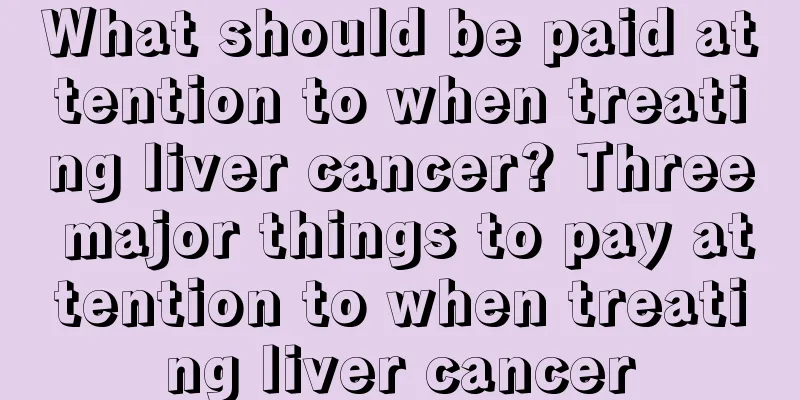How to treat chronic bleeding gums?

|
In real life, gingival bleeding is a common oral disease. When the gums are hit by hard objects from the outside or are severely injured, a small amount of bleeding will occur. Severe gingival bleeding can also cause bleeding. It can be treated with drug packing or oral instruments. Pay attention to oral hygiene, brush your teeth frequently, check your mouth regularly, eat more fresh vegetables, and supplement trace elements. Causes It can be divided into local factors and systemic factors (or diseases). Local factors 1. Local irritation caused by plaque and tartar. The accumulation of plaque and tartar can be caused by food impaction, poor restorations, poor oral hygiene habits, etc., causing inflammation of periodontal tissues, such as plaque gingivitis and periodontitis. 2. Other local irritants (non-plaque and tartar) and bad habits. Mechanical, chemical, poor restorations, poor fillings, poor orthodontic appliances and mouth breathing stimulation may cause local inflammation, such as hyperplastic gingivitis and periodontitis. 3. Local tissue allergy. When local contact with allergens occurs, an allergic reaction is triggered. When the gums are affected, the gums become red and swollen and are prone to bleeding. Such as plasma cell gingivitis. 4. Gingival trauma and periodontal surgery. Systemic factors 5. Endocrine changes. Under the influence of increased sex hormones and progesterone, the gingival tissue is slightly stimulated, causing nonspecific inflammation, leading to gingival bleeding, increased exudation, gingival hyperplasia, etc. Such as adolescent gingivitis, pregnancy gingivitis and gingival tumors. 6. Systemic diseases. Such as blood system diseases, diabetes, cardiovascular diseases, abnormal liver and kidney function, tumors, etc. The disease is usually caused by a decrease in the body's immunity, which in turn leads to a decrease in resistance to local stimuli, inducing gingival inflammation; coagulation system disorders; organic changes in blood vessels, changes in blood flow dynamics, etc. 7. Other external factors that act on the whole body. Such as smoking, taking anticoagulants, etc. Clinical manifestations Gingival bleeding can be divided into passive bleeding and active bleeding (spontaneous bleeding). 1. Passive bleeding: It is mainly manifested by rupture of capillaries in the gums and bleeding when brushing, eating, or sucking. The amount of blood is small, and blood can be seen in the saliva, or there is blood staining on the food eaten and the toothbrush bristles. It can stop by itself after rinsing with cold water. 2. Active bleeding (spontaneous bleeding): refers to the fact that slight stimulation can cause heavy bleeding of the gums, or bleeding of the gums without any stimulation. The bleeding is widespread, the amount is large and it is difficult to stop. This symptom is often related to the patient's overall health condition. Bleeding gums are often accompanied by bad breath. Disease diagnosis 1. Patient complaints, such as bleeding gums when eating hard objects, bleeding when brushing teeth, spontaneous bleeding, etc. 2. Oral examination: check whether there is gingival bleeding in the patient's mouth and related local factors, including gingivitis, tartar, periodontal pockets, local trauma, etc. 3. If any of the above two conditions are met and bleeding from the digestive tract and respiratory tract is excluded, the patient is diagnosed with gingival bleeding. Disease treatment 4. For acute gingival bleeding, emergency hemostasis should be performed first, such as packing, compressing the bleeding area, suturing the gingival papilla, and periodontal plugging. If necessary, short-term systemic hemostatic drugs can be used, but the indications should be strictly controlled. 2. Given that gingival bleeding is mostly caused by local factors, local irritants should be removed in a timely manner, including supragingival cleaning and subgingival scraping to remove plaque, tartar and other pathogenic factors; treat food impaction; remove poor restorations, fillings, and orthodontic appliances; and correct bad oral habits. Oral hygiene education, plaque control, and the cultivation of good oral hygiene habits, including correct brushing of teeth in the morning and evening, proper use of dental floss and toothpicks, regular periodontal examinations and periodontal supportive treatments; quitting smoking, increasing the intake of fruits and vegetables, etc. 3. For gingival bleeding that is suspected to be related to overall health conditions, sufficient attention should be paid and relevant examinations should be performed in a timely manner, such as blood routine, coagulation phase, liver and kidney function, etc., and treatment measures should be taken for systemic diseases. |
<<: There are stubborn oil stains on clothes. Here are some tips for cleaning them
>>: How to correct the lower teeth covering the upper teeth?
Recommend
What are the symptoms of breast and pancreatic cancer
Breast cancer, as the leading female malignant tu...
What are the symptoms of advanced ovarian cancer
What are the symptoms of advanced ovarian cancer?...
Mouth bloodshot and yellow
When your gums bleed, red blood will appear in yo...
How to quickly relieve shoulder pain
Long-term use of mobile phones, watching TV serie...
Symptoms of allergic constitution have so many characteristics
In spring, everything comes back to life, and man...
What causes acute allergies?
The most common acute allergy in life is urticari...
Tips to get rid of eye bags
For female friends, the most feared thing is gett...
What tests are needed for melanoma
Melanoma is a malignant tumor originating from me...
Radar radiation is harmful to the human body
Radar is a detection instrument designed based on...
How to clean an electric blanket
In winter, electric blankets are a common tool fo...
A systematic introduction to the symptoms of skin cancer
Skin cancer can cause great harm to people's ...
What are the methods to remove scale from fish tanks
Many of our friends in life like to raise fish, a...
What can be cured by chopping ginger and putting it in the navel
Everyone is very familiar with ginger. Many peopl...
Essential oil poisoning symptoms
As we all know, people's skin qualities vary ...
How to replenish water when suffering from diarrhea and dehydration
The gastrointestinal function of babies is relati...









